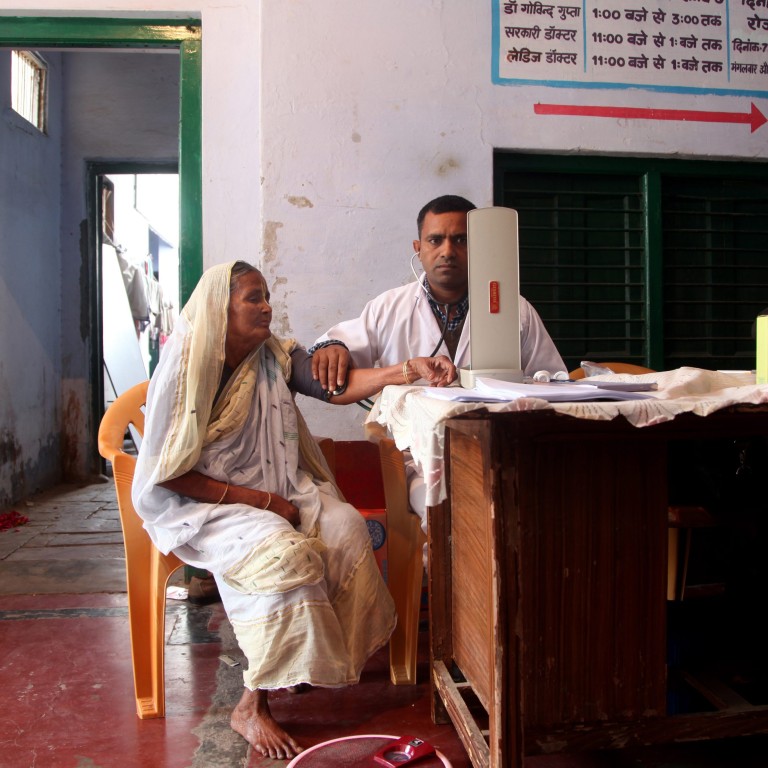
Internet giant Tencent leads US$90m funding round in healthcare app Practo as Chinese firms target India
Chinese web giant Tencent has joined Xiaomi and Huawei, the top-selling smartphone vendors in China in the most recent quarter, in expanding into India with a major investment in medical search start-up Practo.
Bangalore-based Practo, a smartphone app that connects patients and doctors through an online marketplace, recently raised US$90 million in a Series C round of funding.
The start-up already operates in 35 cities in India as well as Singapore and Manila. It is now targeting further expansion in Southeast Asia, Latin America, the Middle East and Eastern Europe.
It does not have plans to expand into China's huge healthcare market at present, the company said.
Practo is one of several Indian start-ups targeting the shortage of doctors in rural areas, as well as other issues of concern like long waiting times and widespread corruption.
Investors are fast cottoning on to how lucrative this area could prove, with Practo rival Lybrate, which is based in New Dehli, closing a US$10 million funding round in July.
"The patient-doctor ratio is massively skewed in India," Lybrate chief executive Saurabh Arora told the Post on the sidelines of the recent Rise tech conference in Hong Kong.
"Most doctors are concentrated in metros, while in [smaller cities] there may not be a doctor at all, people have to travel very long distances ... there's a huge demand-supply mismatch."
China has long suffered similar problems, which may explain Tencent's interest in Practo. Healthcare spending in mainland China is expected to surpass US$1 trillion by 2020, according to research firm McKinsey.
Chinese doctors are notoriously overworked and underpaid, and corruption is rife. In May, British drug giant GlaxoSmithKline was accused of "massive and systematic" bribery to drum up sales in the country.
Bribery is often cited as a factor behind the other great malaise of Chinese health care: violence by patients against medical personnel.
A survey by the China Hospital Management Association found that between 2002 and 2012, cases rose on average by 23 per cent a year.
The app connects patients with doctors remotely, saving users time and money and giving physicians a cut of the proceeds.
"The time cost of going to hospital is about half a day, so people only go to hospital when they are very sick," Chunyu chief technology officer Zeng Boyi told the *Post* last September.
"We make the cost of seeing a doctor low enough so people can see a doctor using Chunyu often."
Chunyu has more than 25 million users across China, connecting them with over 40,000 doctors.
Even without plans to target its domestic market, Tencent would not be the first Chinese firm to be attracted by India's huge and growing middle-class.
Xiaomi and Huawei have recently expanded their operations in the subcontinent as Chinese firms seek to recreate their domestic success overseas. Chinese e-commerce giant Alibaba last week invested in Indian counterpart Snapdeal.
